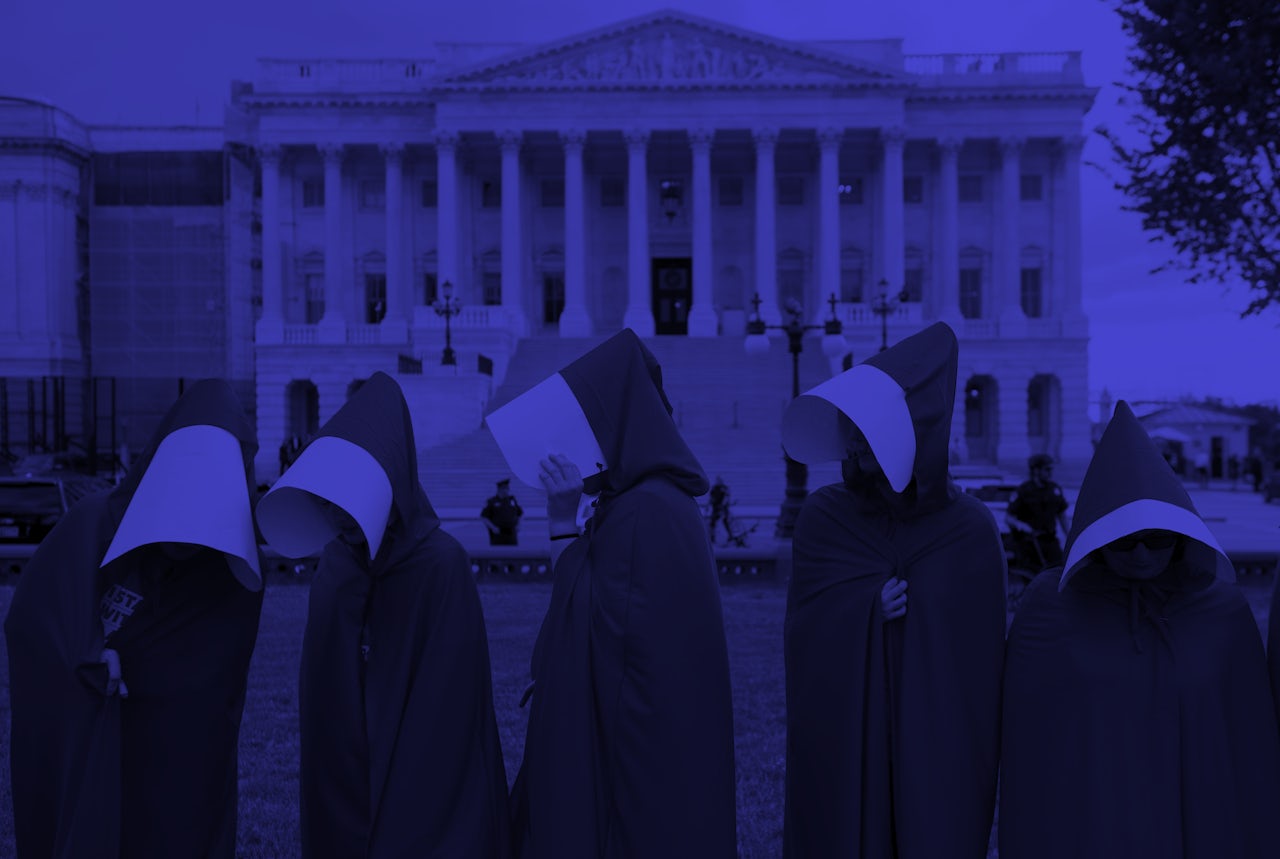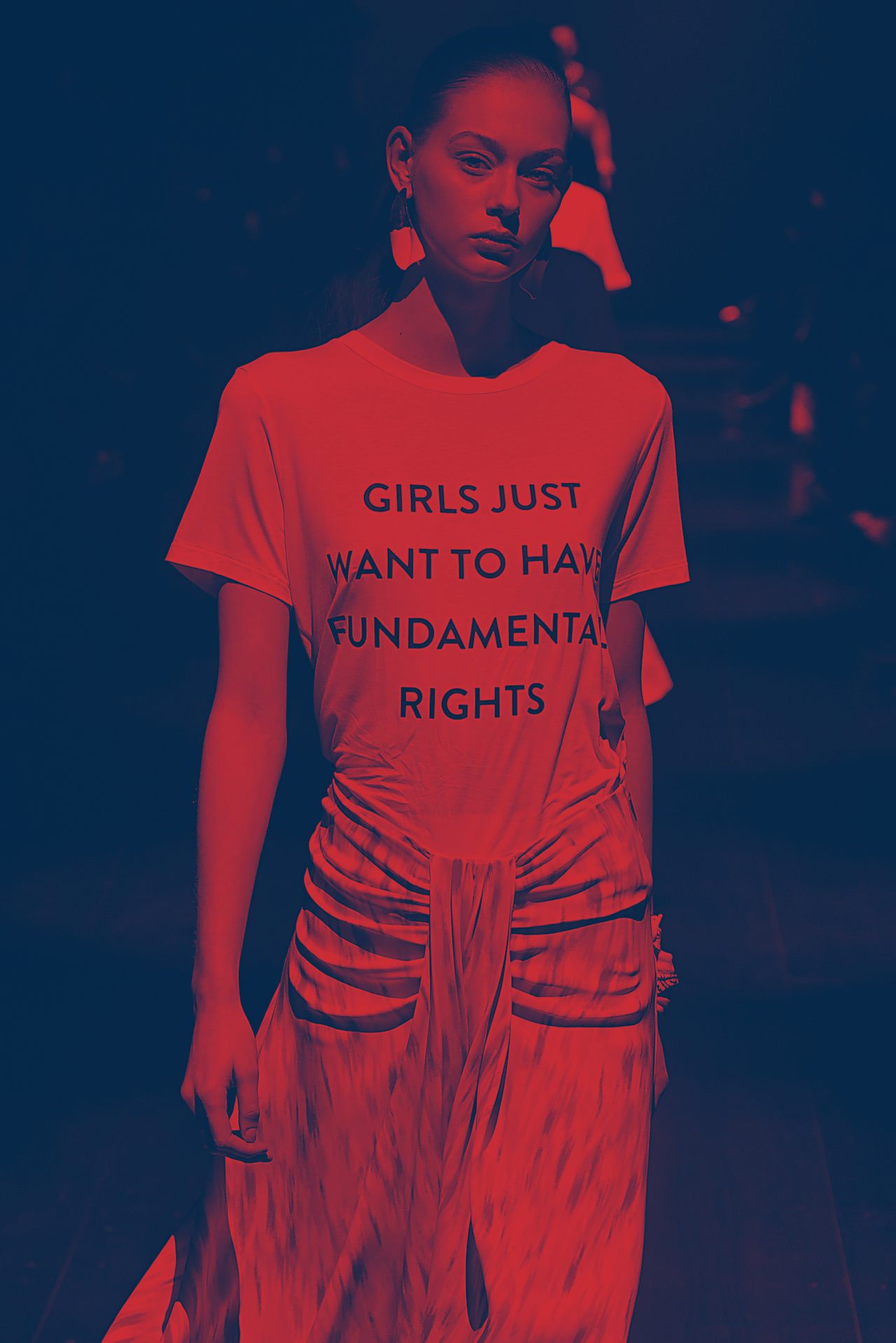On good days, everything in Trump’s America seems hopeless. On bad days, the future seems downright catastrophic. This collective feeling of powerlessness has given rise to a really, really dumb phenomenon: building up celebrities as figures of resistance, even if those celebrities never expressed any desire to become them.
This phenomenon can be seen mainly in flimsy thinkpieces, and there are countless examples. In a piece published Wednesday, Guardian columnist Hadley Freeman hailed Insta-models Gigi and Bella Hadid as “powerful weapons against Trump” because of their heritage. The Hadids “are Muslim and were raised observant by their immigrant father,” Freeman wrote. The sisters attended a protest against Trump’s travel ban in February. Bella, the younger sister, recently told PORTER magazine she is “proud to be Muslim.” Gigi’s boyfriend, Zayn Malik, was also raised Muslim, which doubles the #resistance factor for Freeman. “I honestly can’t remember another Muslim pin-up couple in America, ever, and for them to be so popular now of all times in US history, well it is both remarkable and in some ways does not feel like a coincidence.”
It’s tempting to draw this conclusion, because it offers a glimmer of hope for a world in which, as Freeman writes, “the names ‘Hadid’ and Malik’ bring to mind a heart emoji and not ‘Ugh, terrorist.’” As our own Rawiya Kameir wrote for the FADER last year, “Given the dominant media and entertainment landscape, where there’s only room for Muslims to be terrorists, the combination of Zayn’s fame and secularism become imbued with a near-hyperbolic symbolism.” It may be refreshing — and necessary — to see more diverse faces on runways and on music festival lineups, but it doesn’t change the fact that Trump is trying to deny Muslim immigrants and refugees admittance into the U.S. and Islamophobic hate crimes have shot up by 67 percent since 2015.
Another recent Guardian piece, “Why Despacito is the perfect summer song in Trump’s America,” made a similar argument. “Despacito,” the first Spanish-language song to top the Billboard Hot 100 in over a decade, is a certified banger. It’s been streamed more than 4.6 billion times, and even people who don’t speak Spanish are learning the words and singing along. I recently saw an eight-year-old in an upstate New York Dunkin’ Donuts dancing along while waiting in line — a sure sign of a hit.
“Given today’s cultural and political climate, the song’s moment still might seem unlikely,” the piece’s author, John Paul Brammer, wrote. “Despactio’s rise reveals itself to be the perfect encapsulation of our paradoxical time, one in which we Latinos have more to fear than ever, but all one in which we are enjoying an unprecedented level of cultural and demographic influence in the US.”
This may be true, but Latinos aren’t the ones benefitting from this newfound cultural influence. The average Latino isn’t any better off post-“Despacito,” even if the song has allowed Luis Fonsi, Daddy Yankee, and Universal Latin Music to make piles of money. Median income for Latino households was $45,148 in 2015, compared to $56,516 for all households. “Despacito” being the hottest song of the summer doesn’t change the fact that undocumented immigrants — most of whom are Latino — are being arrested in record numbers and families are being torn apart by federal immigration officers.
These feeble cultural victories are, ultimately, meaningless — they’re watered-down, impotent displays of identity politics. The personal may be political, but what is the cultural meaning of Ivanka Trump’s kids dancing to “Despacito,” if there even is one?
For many people, the Trump administration feels like the first time in recent memory that bad people are in charge and have the unfettered discretion to do whatever they want. Now that Republicans control the federal government, there’s nothing holding them back from chipping away at President Obama’s signature legislation.
And Obama, a reformist liberal at best, was our first celebrity president. He was young, cool, and made plenty of famous friends during his eight years in the White House. The Obamas embraced pop culture, and pop culture embraced the Obamas. Now we have a president who’s not only evil, but also decidedly uncool. There are no heroes in the White House, so we look to celebrities to fill the void. In lieu of substantive political discourse, liberal elites are comparing politics to Harry Potter, The Handmaid's Tale, and Game of Thrones as if this is just a movie we’re all watching together with no real-world repercussions. This relative inaction from the people who are supposed to be leading us into a better future transforms even the most tepid acts of resistance or resilience into groundbreaking political acts.
On a base level, this makes sense: If politics has become pop culture, then the inverse must also be true.
Vulture’s Mark Harris wrote yesterday that we’re “approaching a major turning point in Trump-era pop culture,” and that even apolitical movies like Alec Baldwin’s Boss Baby have political resonance. “Baldwin as a baby as Trump isn’t even a joke the film has to tell; it’s just there,” Harris wrote. “But in most cases, if art feels politically up-to-the-minute, it’s because creators were thinking hard about real things a year or more ago.”
Harris is right in saying that pop culture isn’t meaningless. Music, art, and fashion are undoubtedly indicative of our time, and there’s no shortage of artists creating intentionally political work. There’s also no shortage of people looking for meaning in everything they consume — even songs like “Despacito,” a light-hearted, summery track about dancing and partying. “Despacito” isn’t a resistance anthem. If anything, it’s a temporary reprieve from a world where every piece of art is loaded with meaning in “Trump’s America.” Sometimes a song reflects deeper cultural shifts. But other times, a song is just a song.

